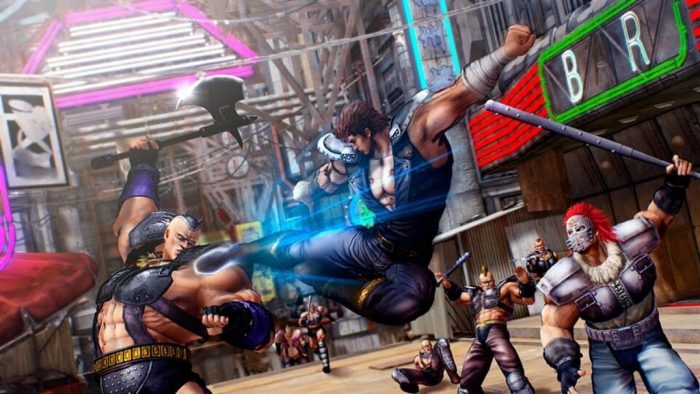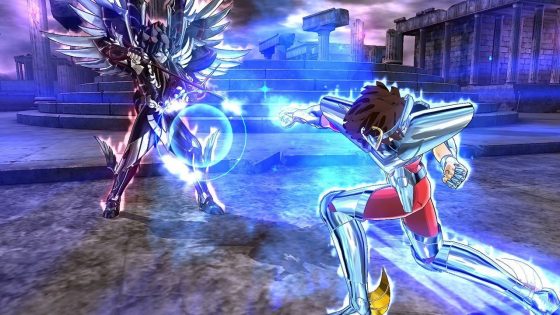
While discussion of mutual influences between Western media and anime are common, it's not too often that China comes up in anime conversations outside of the arguably worrying effect the modern people’s republic has on the medium. In any case, you might already know that Dragon Ball is loosely based on a famous story called Journey to the West and have at least heard mention of The Romance of the Three Kingdoms, another one of the Four Great Classical Novels of Chinese literature. Today we’ll be focusing on another one of these novels, Water Margin, and its history and influence on popular Japanese media. Let’s get started!
Outlaws of the Marsh - Water Margin Story Synopsis and Background
Attributed to Shi Nai'an, the famous, semi-legendary author without much reliable historical information who was supposedly the teacher of Luo Guanzhong, author of The Romance of the Three Kingdoms, Water Margin is a historical fiction novel written in the 14th century, set in Song Dynasty China, and following the bandit leader Song Jiang and his companions known as the Stars of Destiny, 108 warriors who were originally demonic warlords banished by the supreme god Shangdi but accidentally released after repenting to be reborn as heroes.
The story is largely based on written oral tradition from various sources with many variants making it hard to describe the story completely accurately but it involves the adventures and backstories of Song Jiang and the 108 bandit-heroes who eventually all gather in the marshland around Mount Liang and become a band of Robin Hood-esque brothers and sisters who rebel against the corrupt government. Although they eventually receive a pardon after defeating the army in a great battle, many of the heroes later die fighting other bandits while in the service of the emperor or, like their leader Song Jiang, are eventually poisoned by the primary antagonists Gao Qiu, Yang Jian, Tong Guan and Cai Jing, known as the "Four Treacherous Ministers". Although some of the heroes survive, they all go their separate ways making the story have a tragic ending.
This tale is best remembered for its many characters who, despite their large number, have unique personalities and the story’s unique tone for the time as it was written in the vernacular of ordinary people with humorous and sometimes racy elements. It’s also worth noting that Song Jiang was a real person who led a bandit rebellion, although Water Margin itself is a fictionalized account and that the novel has been banned many times in history since it basically advocates for rebellion.
Suikoden Comes East
Known in Japan as Suikoden, translated versions of Water Margin appeared in Japan by 1757 or earlier and the story became hugely popular during the Edo Period starting in 1805 after renowned Gesaku author Kyokutei Bakin released a Japanese translation illustrated by Hokusai. This began an outpouring of new editions, including one featuring artwork by another ukiyo-e master, Utagawa Kuniyoshi, along with more fanart, fanfiction, and other derivative and inspired works that were extremely popular in that era. The immense influence of Water Margin in the development of the literary culture of early modern Japan cannot be overstated and is still felt to this day.
Water Margin in Japanese Pop Culture
Perhaps the most well-known example of Water Margin’s influence on Japanese media is Konami’s beloved RPG series Suikoden which loosely follows the original story in the game, including the still-impressive 108 recruitable characters which has remained a core part of the series even if subsequent sequels have otherwise become much more of their own stories. Koei’s turned-based strategy game Bandit Kings of Ancient China is another game example that loosely retells the story and some more minor references in games include things like the Fire Fist archetype in Yu-Gi-Oh!
On the anime and manga side, there have been numerous titles influenced by or directly referencing Water Margin including Fist of the North Star, Saint Seiya, and Outlaw Star, along with multiple straight manga adaptations like Numata Kiyoshi’s Suikoden. The renowned OVA series Giant Robo: The Day the Earth Stood Still also took inspiration from both Water Margin and Romance of the Three Kingdoms in its story and Experts of Justice characters, specifically drawing from original Giant Robo mangaka Yokoyama Mitsuteru’s own adaptations of the two Chinese Classics.
Final Thoughts

In the end, there’s certainly something compelling about a gathering of over 100 badass bandit heroes to fight the power that we don’t imagine will be going out of style any time soon, as evidenced by the many Water Margin adaptations and influenced works that continue to this day like the upcoming game Eiyuden Chronicle: Hundred Heroes by some of the veteran Suikoden creators.
In any case, we hope you enjoyed this journey with us! Let us know your own thoughts or other series that reference Water Margin in the comments section below and be sure to stick around Honey’s for more of all things awesome, anime based on ancient Chinese novels and otherwise! Until next time, wuxia up, we’re out!

